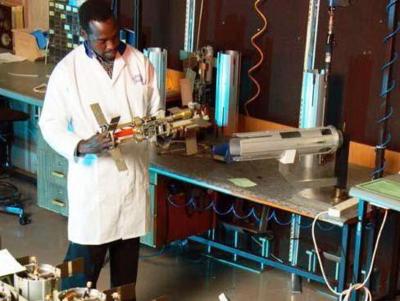How to Become a Registered Professional Engineer in Canada
Articles, Columnists, Godwin O. Airuoyuwa Wednesday, February 2nd, 2011By Godwin O. Airuoyuwa, B.Eng. P.Eng., PMP , Toronto, Canada – Feb. 2, 2011 – Many African immigrant engineers are in this country today either working as factory workers or are engaged in some less dignifying jobs not related to engineering. This is not a choice many of them would have made if the option of being registered as engineers did not seem so difficult to them. But how difficult is it really?
There are two main factors that tend to make the entire process look difficult for a lot of us; the first is the rigor of going back to the classroom which many are required to do when their qualifications are deemed inadequate. They are compelled to go through some engineering courses in some designated universities in order to improve their qualifications. Many usually get very discouraged when asked to do this and become very reluctant to continue with the process.
Honestly I understand how difficult it is for a mature individual sometimes in his/her fifties or even forties being asked to go to the classroom to study for examinations. This is not easy. Unfortunately however, this is the reality. In fairness to the regulatory authorities, like the Professional Engineers Ontario (PEO), for example, they have a standard to maintain and no one should expect that this standard will be lowered simply because it is not convenient for a group of people.
The second factor is the time it takes for one to successfully go through the process. I agree that it takes a while for one to successfully go through the process but this period can be considerably reduced if applicants are well informed. For instance, the federal government of Canada has come up with a plan to speed up the credential recognition process for internationally educated professionals including engineers. Under this plan, by December 31, 2010 internationally trained engineers who submit applications for licensing are to be advised within one year if their qualifications are recognized. In addition, I am sure many are not aware that since 2003, the PEO has allowed prospective immigrants to begin the licensing process from outside Canada, even before they finalize their immigration plans and they are allowed to continue with the process when they arrive in the province. This has actually provided some head start for many newcomers who by the time they arrive in the country already have full knowledge of the licensing requirements. In some cases, some of the applicants may already have their qualifications assessed and recognized even before they come here.
Applicants wishing to be licensed in Ontario province should be informed that there is a program referred to as the Engineering Intern Training (EIT) credit program. This program enables eligible international engineering graduates with a Bachelor of engineering (B.Eng) or a Bachelor of applied science degree to apply for a professional engineer license at no cost. In fact I am a beneficiary of this program. My application for the license did not cost me any money.
Please note also that in addition to having your qualifications verified and recognized, there are two other conditions you must satisfy before you are licensed to practice engineering here in Canada; 1) You must take and pass the Professional Practice Examination (PPE), which tests your knowledge of their laws and ethics. Every profession has laws and ethics guarding its professional practice. 2) You must have at least 12 months of Canadian engineering experience. This means that you must work in an engineering outfit for a period of at least one year. One way of going about this second condition is for the immigrant engineer to enroll for the EIT program as soon as he/she submits an application and then go ahead to look for a job as a technician in a firm that has registered professional engineers working in it. This usually turns out to be a wise decision at the end.
Records show that only about 1/3 of Ontario’s 73,000 engineers are trained outside of Canada. I honestly do not have the record of what proportions of this number are African immigrants, but I can tell you that the number must be very small. So let’s make more efforts and be more determined.
I am not going to tell you that becoming a registered engineer is easy; neither will I tell you that it is difficult. But like they say, no good thing comes easy. My advice is, seek information from the right sources and never rely on hearsay – it just might be easier than you thinkwp_posts
Related Posts
- Tinubu and the Creation of a New Society – By Abiodun Komolafe
- Embracing Invincible Defense Technology for Lasting Peace – By Dr. David Leffler
- Insecurity: Time to Heed Zulum’s Warning – By Abiodun Komolafe
- The Moral Blemish on the Tinubu Presidency – By Tochukwu Ezukanma
- The Soldiers Must Remain in the Barracks – By Tochukwu Ezukanma
Short URL: https://newnigerianpolitics.com/?p=3501

































